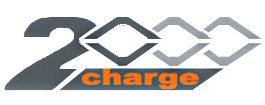Think Globally, Bill Locally

By Wolf Kring
YNOT – In his bestselling book The World is Flat, Thomas Friedman analyzes 21st Century globalization, using the metaphor of the world as a level playing field upon which all economic competitors operate equally. Friedman explores the perceptual shift required for countries, companies and individuals to remain competitive in a global market where historical and geographical divisions are becoming increasingly irrelevant.
As individual countries such as Greece and Italy teeter on the brink of bankruptcy, other markets representing a significant portion of the world’s population continue to demonstrate impressive growth.
Online merchants that seize the opportunity afforded by the internet’s global reach are therefore in a better position to ride out any downtown in their local economy. After all, it isn’t called the World Wide Web for nothing.
Yet, when it comes to arguably the most important part of the sales process, it is surprising how many webmasters resolutely stick to the Anglo-Saxon billing mechanism of choice, the credit card. As both countries and individuals in the developed world drown in a sea of debt, a wide range of payment mechanisms exist in the developing world which are unique to each market.
For example, consumers in Brazil — currently the world’s eighth largest economy — already are accustomed to paying for online goods and services using PagosBancarios. Under this system, consumers at thousands of points of sale receive a pre-filled Boleto bank slip that authorizes payment directly from their bank account. About 20 percent of all e-commerce payments in Brazil use the preferred Boleto system.
Other examples include the Teleingreso payment method familiar to consumers in Spain, and Przelewy24, which is a favorite of those located in Poland.
Since negotiating terms with various banks worldwide and implementing their individual solutions is a costly and time-consuming process, it makes sense for most merchants interested in going global to work with an company that already has such agreements in place. Often, these companies are referred to as “alternative” billing services, but the term is somewhat misleading. Given the popularity of these payment methods, they should be considered primary, not secondary, billing methods in the markets where they exist.
Given opportunities afforded by the 24/7 “always on” global economy to which Friedman refers, online merchants that do not deploy relevant local payment methods are depriving themselves of income from surfers who would like to pay, but can’t.
By teaming up with a reliable “alternative” processing partner, merchants can benefit by capitalizing on arguably the ultimate growth market — the global one.
 Wolf Kring is president and chief executive officer of 2000Charge, a so-called “alternative” payment processor operating in the adult entertainment space since 1999. Headquartered in Los Angeles, the company operates worldwide and has global reach in the European Union, Canada, Latin America and Asia Pacific in addition to the U.S.
Wolf Kring is president and chief executive officer of 2000Charge, a so-called “alternative” payment processor operating in the adult entertainment space since 1999. Headquartered in Los Angeles, the company operates worldwide and has global reach in the European Union, Canada, Latin America and Asia Pacific in addition to the U.S.










